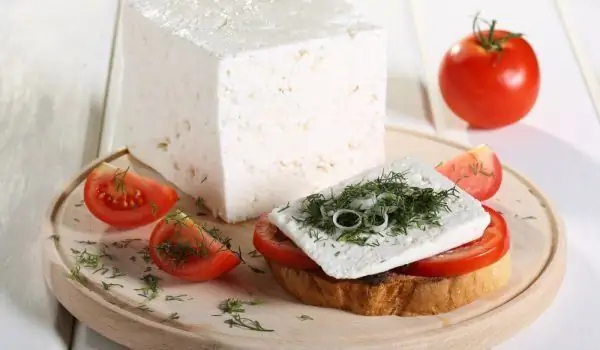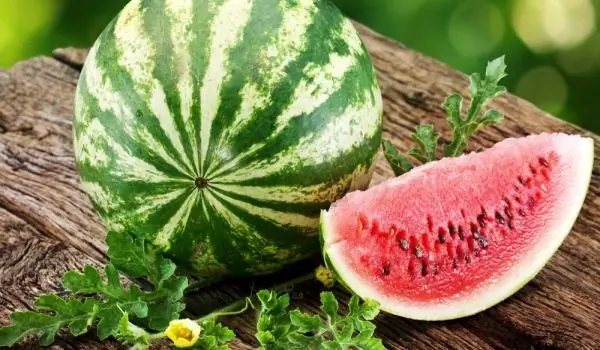2025 Author: Jasmine Walkman | [email protected]. Last modified: 2025-01-23 10:18
Bulgarian scientists from the Agricultural Academy in Plovdiv have developed the first Bulgarian variety of broccoli. Its name is IZK Iskra. Anyone who wants to get seeds from it can do so by contacting the Institute of Vegetable Crops "Maritsa" - Plovdiv.
The Bulgarian ones broccoli are a joint scientific development of Prof. Galina Pevicharova, Assoc. Prof. Galina Antonova from the scientific unit at the Agricultural Academy and Assoc. Prof. Krassimir Mihov from the Agricultural University in Plovdiv.
The creators of this extremely useful vegetable for people have taken into account to the maximum extent the peculiarities of the local climate, soils, as well as the taste preferences of the population.

Newly developed variety broccoli is intended for late Polish production. Those wishing to grow Bulgarian broccoli should sow the seeds in June. The sprouts of the sprouted broccoli take place at the end of July, and its growing time coincides almost completely with that of the head cabbage.
According to agronomists, the vegetation period from planting to harvesting the finished crop is about 75-80 days. The remaining secondary flower heads are collected at the end of the vegetation in stages.
The Bulgarian ones are expected broccoli to reach a weight between 300 and 500 grams per head. The heads of the Bulgarian variety consist of small or medium colored buttons, and in the axils can be formed a large number of secondary heads weighing up to 150 grams.
The expectations of the team that developed the first Bulgarian variety broccoli, are quickly gaining ground among vegetable growers in our country. According to Dr. Stoyka Masheva from the Agricultural Academy, the Bulgarian variety of broccoli is highly resistant to blight.

Its leaves are not of interest to pests such as leaf-eating caterpillars and lice, which is a good prerequisite for the most environmentally friendly cultivation of this vegetable.
Like another unique product of Plovdiv scientists - tomatoes "Plovdiv Carotene", the Bulgarian broccoli IZK Iskra is twice as rich in antioxidants and Vitamin C as similar imported products.
These qualities, combined with its excellent taste, make it suitable for fresh consumption, heat treatment or freezing.
Experts recommend consuming at least three servings broccoli weekly, as a prophylaxis against a number of diseases, incl. atherosclerosis, diabetes and various oncological diseases.
Recommended:
Making Homemade Pate - Easy, Tasty And Economical

Homemade bird pâtés , meat, fish or vegetables are a great idea for breakfast, lunch or a festive meal. You can make the home-made appetizer tastier by adding a variety of spices to taste, carrots, onions, herbs, boiled eggs, cream, meat broth.
Dried Apples - Easy And Tasty

Dried fruits are not just a useful alternative to cakes and sweets. They are useful, satiate hunger and last but not least delicious. They do not contain emulsifiers, nitrites, preservatives or colorants. In the process of drying they may lose some of their nutrients, but the valuable trace elements such as calcium, iron and magnesium, as well as pectin in them are fully preserved.
Narin - The First Bulgarian Acidophilic Yogurt

Recently, a new type has appeared in the sections for dairy products in stores yoghurt with the sonorous and beautiful name Narinѐ . Narinѐ is an Armenian female name given by Professor Levon Erzinkyan to the yoghurt with acidophilic bacteria produced by him and distributed in the then SSSP since 1964.
We Eat Less And Less Native Cheese And More And More Gouda And Cheddar

The sale of white brined cheese in Bulgaria is much lower compared to the consumption in 2006, shows an analysis of the Institute of Agrarian Economics, quoted by the newspaper Trud. Consumption of yellow cheese in our country has also fallen.
The First Bulgarian Watermelons Are Already On The Market. Don't Buy Them

The first production of Bulgarian watermelons is already available in our country, but according to the producers they are not bought, as they are offered at slightly higher prices than the imported ones. The trade network is already flooded with Greek and Macedonian watermelons, which have seriously reduced the value of summer fruits, so that Bulgarian farmers are unable to market their production, bTV reports.

